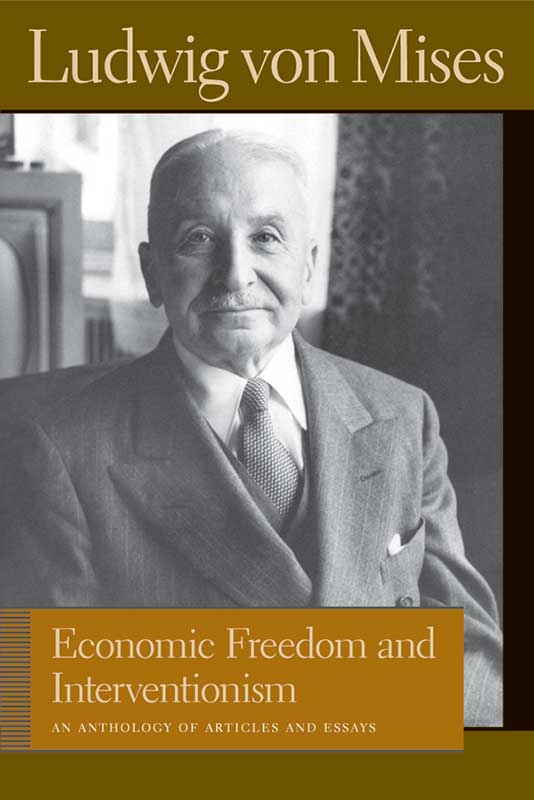
Economic Freedom and Interventionism
- Ludwig von Mises (author)
- Bettina Bien Greaves (editor)
Economic Freedom and Interventionism is a primer of the thought of Ludwig von Mises and an anthology of his writings. This volume contains forty-seven articles edited by Mises scholar Bettina Bien Greaves. Among them are Mises’s expositions of the role of government, his discussion of inequality of wealth, inflation, socialism, welfare, economic education, and his exploration of the “deeper” significance of economics as it affects seemingly noneconomic relations between human beings.
Key Quotes
Money & Banking
This country, and with it most of the Western world, is presently going through a period of inflation and credit expansion. As the quantity of money in circulation and deposits subject to check increases, there prevails a general tendency for the prices of commodities and services to rise. Business…
Taxation
The financial embarrassment of the main European countries is predominantly caused by the bankruptcy of the nationalized public utilities. The deficit of these enterprises is incurable. A further rise in their rates would bring about a drop in total net proceeds. The traffic could not bear it.…